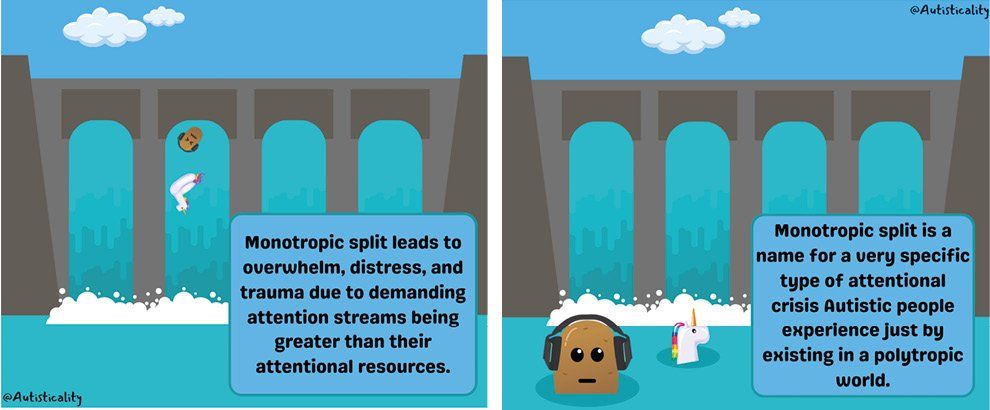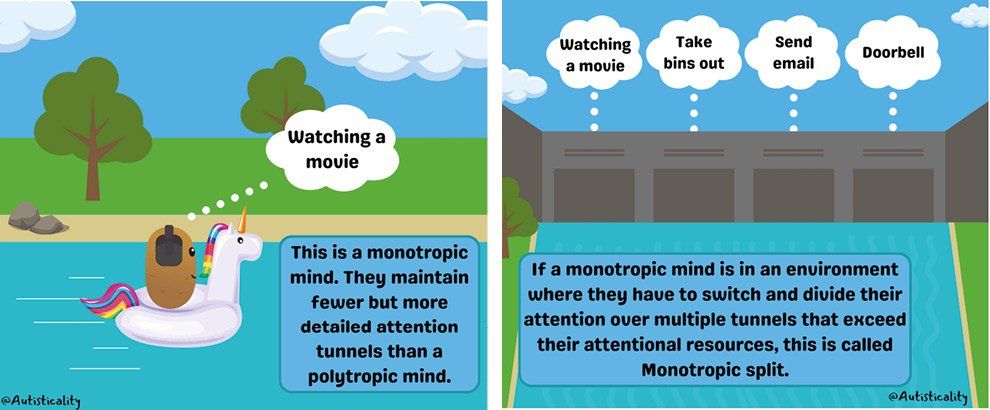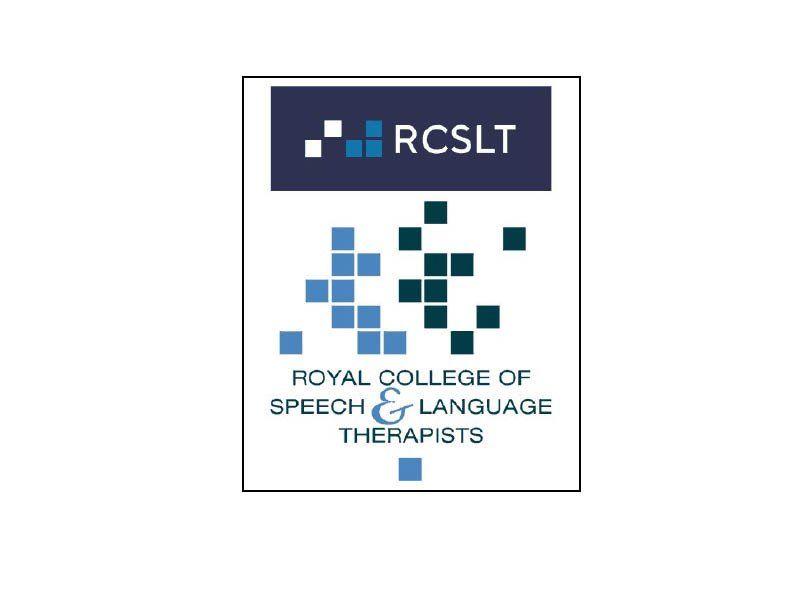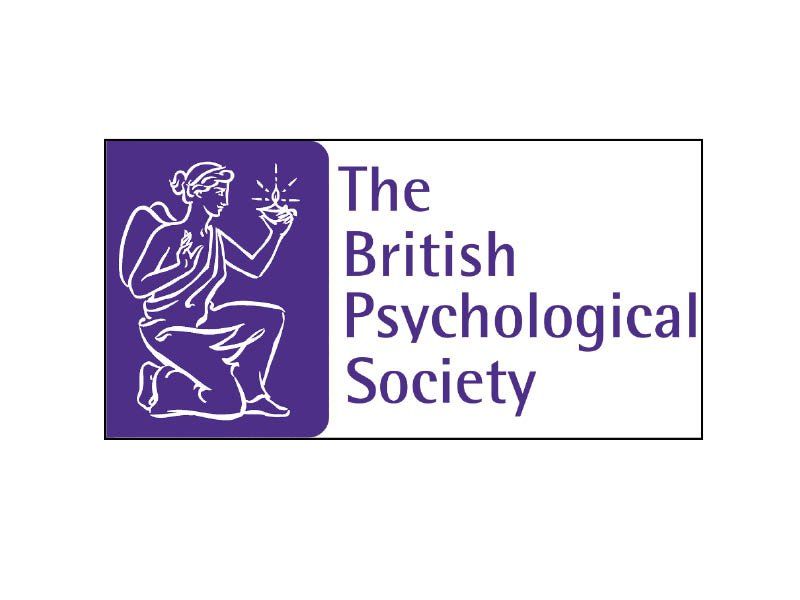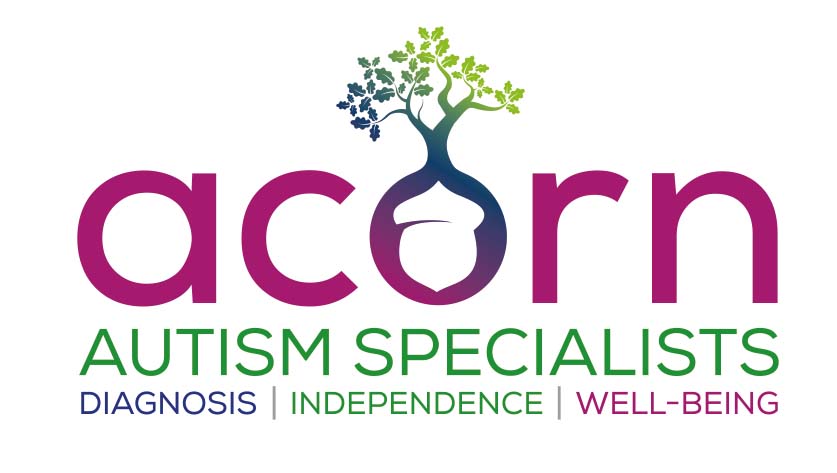Monotropism is a theory discussing the differences between autistic and non-autistic people with regards to focused attention i.e monotropic vs polytropic minds. Someone with a polytropic mind can focus on multiple things at once but in lesser detail.
They are also able to transition between topics, environments or situations more easily than a monotropic mind. Someone with a monotropic mind, in comparison, focuses on one or few things, but in greater detail, finding it difficult to switch tasks, change environments or shift attention. Autistic people often tend to have monotropic minds.
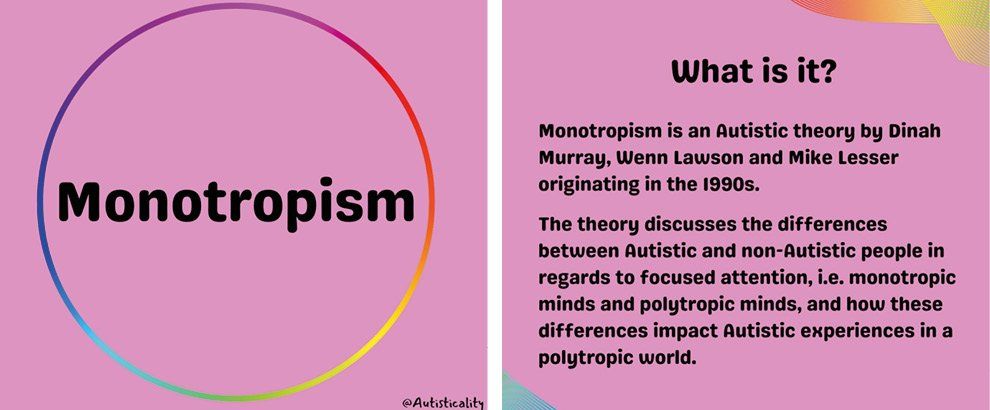
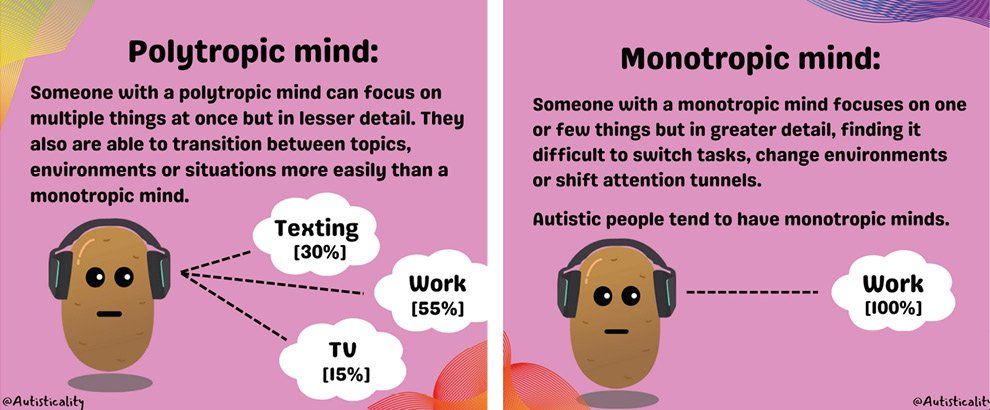
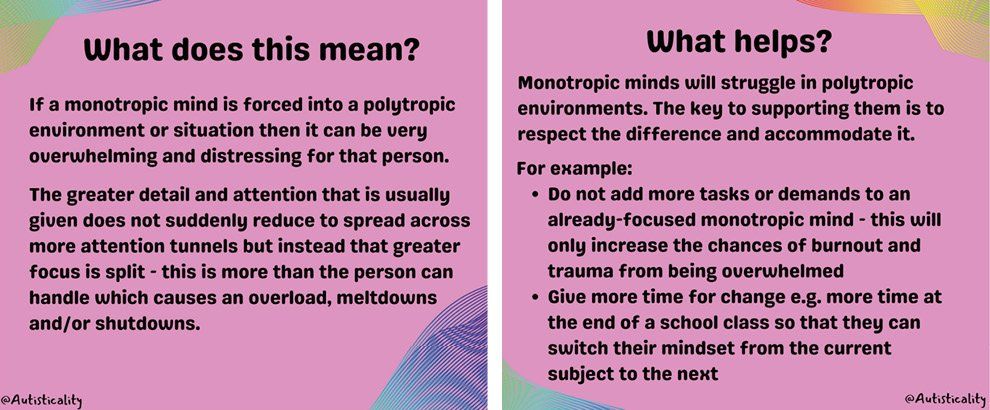
Monotropism is related to hyperfocus, which is characterised by an intense state of concentration or focus for extended periods of time. And, if the task is enjoyable or important, improved task performance. It can also lead to reduced awareness of external stimuli, which can be positive in some situations, such as being able to focus in a busy office. However, can also come with difficulty when interrupted, and then getting back into the task, or attention switching to something of less interest. The concentration can also be so intense that an individual loses track of time, other jobs that need to be done, including self-care, and the surrounding environment.
If a monotropic mind is forced into a polytropic environment, it can be overwhelming and distressing for the person. The greater detail and attention that is usually given does not suddenly reduce to spread across more tasks, but instead the greater focus is split. This is often more than the person can handle, leading to overload, meltdowns and shutdowns as the demand is greater than the individual’s attentional resources. Ways to help can include, reducing demands and allowing more time for change, or gentle transitions.
Monotropic Split
